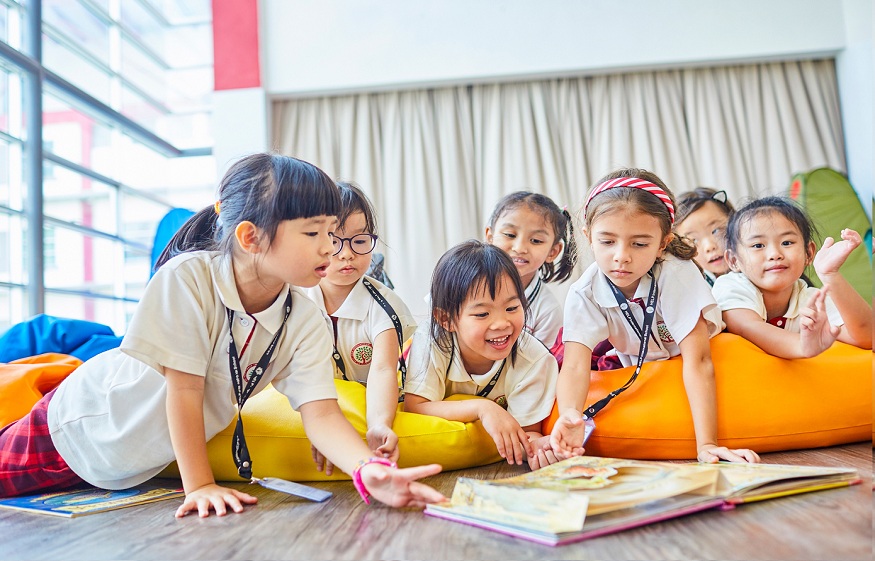Singapore, known for its thriving multicultural society and robust education system, is home to a wide range of international preschools that offer bilingual lessons.
These preschools recognize the importance of early language acquisition and aim to provide a nurturing environment for children to develop proficiency in multiple languages from an early age.
By embracing bilingual education, these schools aim to equip children with invaluable language skills and cultural awareness, preparing them to thrive in a globalized world.
In this article, we will explore the benefits of bilingual preschool Singapore, discuss the significance of international preschools in Singapore, and highlight some notable institutions that offer bilingual programs to cater to the diverse needs of families residing in this vibrant city-state.
The Power of Bilingual Education
Bilingual education offers numerous cognitive, linguistic, and cultural benefits to young learners. Research has consistently shown that exposing children to multiple languages from an early age enhances their cognitive development, including problem-solving skills, memory retention, and multitasking abilities.
Furthermore, bilingualism promotes better communication and social skills, as children learn to navigate different linguistic and cultural contexts. It also fosters a sense of inclusivity and appreciation for diversity.
The Rise of International Preschools in Singapore
Singapore’s multicultural society, with its diverse expatriate population and international business community, has led to an increased demand for preschools that provide bilingual education.
Recognizing this demand, several international preschool have emerged in Singapore, catering to families seeking a globally-oriented education for their children.
These preschools offer a variety of bilingual programs, encompassing a range of languages such as English, Mandarin Chinese, Malay, and Tamil.
Benefits of Bilingual Preschools in Singapore
International preschool Singapore plays a crucial role in laying the foundation for a child’s cognitive and linguistic development.
In multicultural societies like Singapore, bilingual preschools have emerged as an effective approach to early education.
By offering instruction in both English and a second language, such as Mandarin, Malay, or Tamil, these institutions provide children with a unique advantage.
Cognitive Development
Bilingual preschools in Singapore offer significant cognitive benefits to young learners. Research has shown that bilingual children often exhibit enhanced cognitive abilities compared to their monolingual peers.
These benefits include improved problem-solving skills, heightened creativity, and greater flexibility in thinking.
Language learning itself stimulates various cognitive processes. Children in bilingual preschools engage in critical thinking as they navigate between two languages, acquiring new vocabulary and grammatical structures.
The brain’s executive functions, such as attention, memory, and cognitive control, are exercised and strengthened through the constant processing and switching between languages.
Moreover, bilingualism has been associated with improved academic performance across subjects.
The ability to communicate and comprehend ideas in multiple languages provides children with a broader perspective, enhancing their reading comprehension, mathematical reasoning, and overall academic achievement.
Cultural Awareness and Appreciation
Bilingual preschools in Singapore foster cultural awareness and appreciation, promoting a deep understanding of different customs, traditions, and perspectives.
By immersing children in multiple languages, these educational settings create an environment that celebrates diversity and nurtures intercultural competence.
In a multicultural society like Singapore, where English is widely spoken alongside three other official languages, bilingual preschools serve as a platform for cultural exchange.
Children not only learn a second language but also gain exposure to the associated cultural values, literature, music, and art.
This exposure enables them to develop an appreciation for various cultures and a sense of global citizenship from an early age.
Bilingual preschools also help children build connections with their heritage and ancestral roots. Singapore is home to diverse ethnic communities, and many parents desire to maintain their cultural heritage within their families.
Bilingual education provides an opportunity for children to learn their mother tongue or the language spoken by their grandparents, ensuring the preservation of cultural identity and fostering a sense of belonging.
Enhanced Communication Skills
One of the key benefits of bilingual preschools in Singapore is the development of strong communication skills.
By exposing children to multiple languages, these educational institutions cultivate linguistic dexterity, enabling children to effectively communicate with a broader range of individuals.
Bilingual preschools provide a conducive environment for language learning through interactive activities, songs, stories, and games.
Children develop the ability to express themselves confidently in languages, expanding their vocabulary and honing their pronunciation skills.
This linguistic flexibility equips them with the essential tools to communicate fluently in multicultural settings, thereby facilitating social integration and interaction.
Moreover, bilingualism has been linked to improved metalinguistic awareness—the ability to think about and analyze language.
Children in bilingual preschools develop a greater understanding of language structures, grammar, and syntax, enhancing their overall language proficiency and literacy skills.
Global Perspective and Future Opportunities
In an increasingly interconnected world, bilingualism has become an asset with numerous advantages.
Bilingual preschools in Singapore prepare children for future opportunities by equipping them with the language skills and cultural competence necessary to thrive in a globalized society.
Singapore’s strategic position as a global business hub makes it imperative for young learners to develop proficiency in English and a second language.
Bilingual preschools lay a strong foundation for language learning, ensuring that children develop a solid linguistic base that can be further honed in later years.
This linguistic advantage not only enhances their employability but also opens doors to academic and career opportunities on an international scale.
Additionally, bilingualism fosters an appreciation for different cultures and perspectives, promoting tolerance and empathy.
These values are essential in a world that is becoming increasingly interconnected, enabling children to become global citizens who can navigate diverse cultural landscapes with ease and understanding.
Conclusion
Good preschools in Singapore that provide bilingual education play a crucial role in nurturing young minds and preparing them for a globalized world.
These schools offer a multitude of advantages, including cognitive development, language proficiency, and cultural competence.
By immersing children in an inclusive and stimulating bilingual environment from an early age, these preschools lay a strong foundation for their future academic and personal growth.
As Singapore continues to attract a diverse international community, the demand for bilingual education in preschools is likely to increase.
It is essential for parents to explore the available options and choose an international preschool that aligns with their educational goals and values, ensuring their children receive the best possible start in their educational journey.
Ultimately, bilingual preschools contribute to Singapore’s vision of being a global educational hub, fostering a generation of young individuals who are proficient in multiple languages and equipped to thrive in an interconnected world.

